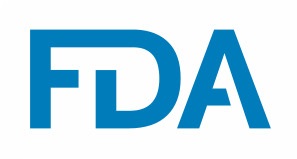In a move to strengthen regulatory oversight and eliminate double standards, the U.S. Food and Drug Administration (FDA) announced it will expand the use of unannounced inspections at foreign manufacturing facilities that produce food and essential medical products for the American market.
Ending the Double Standard in Global Inspections
“For too long, foreign companies have enjoyed a double standard — given advanced notice before facility inspections, while American manufacturers are held to rigorous standards with no such warning,” said FDA Commissioner Martin A. Makary.
The FDA emphasized that these surprise inspections will help identify bad actors, expose falsified records, and uncover hidden violations that could threaten public safety.
Building on Pilot Programs in India and China
This policy shift builds on earlier pilot inspections conducted in India and China by the FDA’s Office of Inspection and Investigations. The pilot aimed to test whether foreign manufacturers can and should receive the same level of regulatory scrutiny as their U.S. counterparts.
“Our science-based global inspections ensure that products entering the U.S. are safe, trusted, and accessible,” added Michael Rogers, FDA Assistant Commissioner for Inspections and Investigations.
Foreign Plants Face Increased Oversight
Currently, foreign manufacturers often receive weeks of advance notice ahead of FDA inspections — a practice not extended to U.S. plants. The FDA believes this advance warning has undermined the integrity of the oversight process.
Despite prior notification, FDA inspectors still uncover serious deficiencies in foreign plants more than twice as often as in domestic inspections. The FDA says this data justifies a shift to surprise inspections to uphold consistent global standards.
Why It Matters: Majority of U.S. Drugs Come from Abroad
According to 2020 data from Janet Woodcock, then-director of the FDA’s Center for Drug Evaluation and Research, more than 70% of active pharmaceutical ingredients and over 50% of finished medications used in the U.S. are manufactured overseas.
This makes foreign oversight critical to public health and safety. In 2019 alone, FDA inspectors conducted 9,66,000 international site visits, with India topping the list of violations — 17% of inspected Indian plants reported safety issues, compared to a global average of 9%.
COVID-19 Exposed Gaps in Foreign Oversight
In March 2020, the FDA suspended inspections at thousands of foreign facilities supplying essential medical goods during the pandemic. This triggered concerns over supply chain safety and oversight gaps.
This experience further underscored the need for real-time, unannounced inspections. Rogers described them as “essential for making fact-based regulatory decisions to protect public health.”
Reinforcing the FDA’s Global Credibility
The agency aims to set a global benchmark for regulatory oversight. This will be achieved through continuous policy evaluation and ethical clarity for its investigators. The FDA stated its intent is to ensure that all products reaching American consumers are “safe, legitimate, and honestly made.”
As reported by msn.com, the new initiative reflects the FDA’s growing commitment to protecting the U.S. supply chain. It aims for more consistent and transparent global regulation.

































